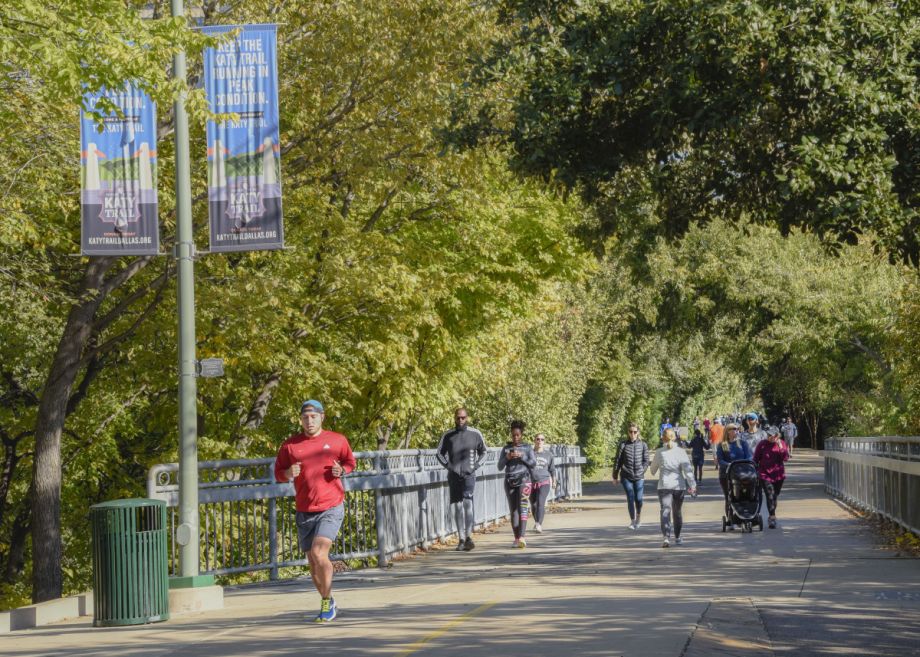By now we have heard that the federal government will be investing billions of dollars in U.S. communities in the coming years as a result of the Bipartisan Infrastructure Law, signed in 2021. While many people may know that this funding will be put to use to strengthen virtual connections through greater broadband access and repair our roads, bridges and water systems, they may not know that it offers an unprecedented opportunity to leverage transportation infrastructure to boost the physical and human interconnectedness of our cities by:
-
providing more pedestrian and bike-friendly mobility options;
-
delivering air-quality and congestion benefits;
-
creating local economic development opportunities; and
-
offering linkages to green space and recreation.
U.S. cities have been using federal transportation dollars to help build multiuse trail systems for more than a decade. For example, Atlanta’s Beltline, a 22-mile loop that was formerly a rail line, has been expanded to include 33 miles of paved walking and biking trails linking neighborhoods and parks, helping to ease the city’s congestion while reducing carbon emissions. Kentucky’s Louisville Loop is a projected 100-mile trail system that will eventually surround the city and connect neighborhood and destination parks, enhancing the historic Olmsted system of parks and parkways.
Dallas is the latest to join cities that are prioritizing trail networks as part of multimodal transportation systems. The Loop Dallas is building a 50-mile circuit trail by the same name that will encircle the core of the city. By connecting 39 miles of existing trails in Dallas with 11 miles of newly built trails, The Loop Dallas will increase access to public transportation and green space, ensuring residents can access these resources across the city to commute, recreate, and for wellness. By creating a stronger, more united Dallas, The Loop Dallas’ urban trail system can be considered the single most important investment Dallas can make for its residents for generations to come. For the first time in its history, Dallas will link north, south, east, and west and provide equitable access to green space and an urban forest that was not previously accessible to the public.
Part of this project’s future success is driven by the diversity of funding. The Loop Dallas is made possible in part by federal transportation funds. The U.S. Department of Transportation has many programs for planning, capital projects, and technical assistance that aid with the creation of linear parks, trails, park access, and recreational facilities. Several of these programs received a boost in funding through the Bipartisan Infrastructure Law or were launched as pilot programs that have a focus on improving public safety, climate resilience, and equitable access to green space and recreation.
Philip Hiatt Haigh, Executive Director of The Loop Dallas, explained how important these federal funds are to achieving multifaceted outcomes, getting important projects off the ground, or closing funding gaps that can help nudge projects over the finish line. “We were fortunate to tap into Congestion Mitigation and Air Quality Improvement (CMAQ) funding to help us finish this incredible project that will provide numerous transportation, economic, and environmental benefits. CMAQ funding helped us create a safe and reliable connection between two neighborhoods, bypassing an interstate and transit line.”
City Parks Alliance and its bi-partisan Mayors for Parks Coalition advocate for increased federal investment in our nation’s city parks. Federal investments can support parks to achieve numerous goals from transportation to climate resilience and stormwater management to community development, with equitable outcomes.
Dallas Mayor Eric Johnson has made it a priority to increase the number of parks throughout the city. “I am excited to work with City Parks Alliance and to be a part of its Mayors for Parks Coalition,” said Mayor Johnson. “As we saw during the pandemic, parks and trails are critical infrastructure in a modern city. They have proven to make our neighborhoods stronger, our families healthier, and our economy more vibrant. Together, we can work to ensure that every resident in every ZIP code in our city has easy access to a beautiful green space.”
City Parks Alliance shares information about federal grant programs, which can be hard to navigate as they are overseen by various agencies, each with different guidelines. Our Equitable Park Funding Hub highlights seven sectors and summarizes grant opportunities under each, including eligibility, park funding use, match requirement, and other important information to help determine if the funding program is the right fit for a project. All funds highlighted on the Hub are relevant for parks and recreation in low-income communities.
With this once-in-a-generation investment opportunity before us, now is the time to supercharge the concept of green trail systems that integrate nature and low-carbon transportation options equitably throughout communities. This wave of federal funding can better connect urban communities to their great civic assets–their people and parks–to help our cities prosper. City Parks Alliance is excited to be a part of the effort to help cities secure transportation funds for their local projects.
Catherine Nagel is the executive director of City Parks Alliance.








